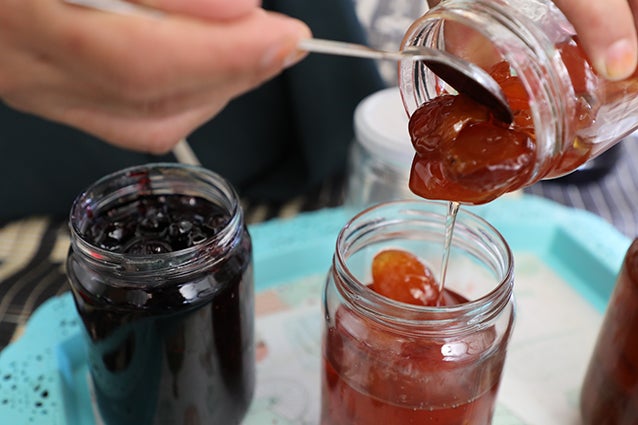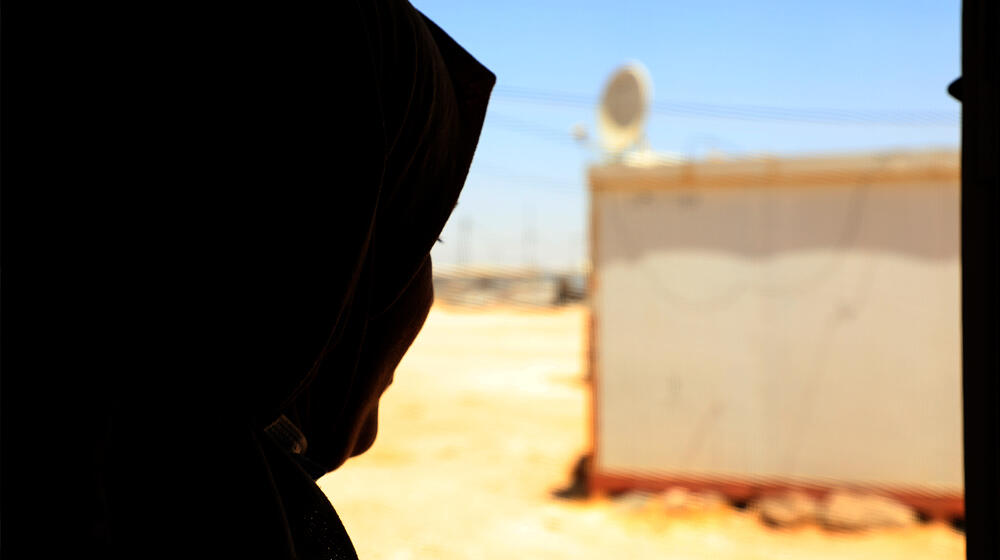“I Felt Stronger and I Wanted to become Independent,”: Fatima*
As soon as he ran out of money, the verbal abuse began.
“He insulted me and called me names,” said Fatima, a 42-year old Syrian refugee, as she wiped her tears away. “When we were in Syria, he never treated me like this.”
Fatima fled the bombings back home in December 2012 with her husband and five step children.
After arriving in Jordan, her hardships began. Her husband started mistreating her and she often cried herself to sleep.
As refugees, life was already difficult. Like others who fled from Syria, Fatima had to adapt to her new environment at Zaatari camp. She was also three months pregnant with her first child and was suffering from morning sickness.
During the first few months, Fatima's family survived on lentils and bulgur wheat. They couldn't even afford to buy cucumbers or tomatoes, which are staples even in the poorest of homes. But it was the emotional abuse that made her life miserable.
“He continued to humiliate me even in front of my guests to prove his masculinity. He often told me you are a woman, you are nothing. I felt weak and I used to cry every day.”
The emotional abuse persisted, even after her family grew.
In order to prevent his anger from escalating, Fatima had to sell her electronic food ration vouchers at a lower price in order to buy him cigarettes, rather than spending her monthly entitlement on basic necessities for her four children aged between two and eight. “He smokes a pack a day while that money could be spent on food for us,” she said. Her stepchildren, who became adults, live in a separate caravan and have their own vouchers.
Refugee women like Fatima, who were uprooted from their homes and displaced, remain vulnerable to gender-based violence (GBV). Eighty Eight percent of reported incidents were perpetrated by an intimate partner or someone known to the survivor, according to the latest GBV IMS report published by UNFPA- Jordan and partners in 2020.
The report also showed that psychological abuse remains the most common form of GBV and is experienced by ninety five percent of survivors-including Syrian refugee women-in Zaatari camp.
While the scars may not be visible, psychologically abused women might suffer from low self-esteem, anxiety and depression.
When Fatima tried to stand up for herself, her husband became even more abusive.
“When I told him I wanted to leave him and go to my parents, he said you cannot take the children with you.”

Fatima felt trapped in a life she did not want but the situation changed after her friends, who were aware of her plight, encouraged her to seek help at one of the three UNFPA- supported Women and Girls Safe Spaces in the camp.
The spaces, run by the Institute for Family Health (IFH)/ Noor Al Hussein Foundation, provide case management services, counseling sessions, referral to different services including sexual and reproductive health and legal assistance. They also include income-generating, recreational and empowerment activities. The services are crucial for women who are on their healing journey. In 2020, these services reached 58,963 beneficiaries.
“I learned about violence against women and about sexual harassment. I complained to the counselor about the abuse and she assured me that whatever I say remains confidential,” Fatima explained. “After the sessions, I felt better. My personality changed for the better; I became stronger and I wanted to become independent.”
At the space, Fatima also found comfort when she knitted with other women.
“Many women suffer from isolation because of the violence perpetrated by their husbands,” said Rasha Abu Khadra, a case manager who works at IFH. “When they get together and knit, they share stories and they realize that they are not alone. “Counseling also helped them in restoring their confidence and boosting their self esteem. Besides, women receive emotional release sessions and relaxation techniques to help them deal with stress.”
As part of the income-generating activities provided by IFH to help women become self-sufficient, Fatima learned how to make perfumes and handmade soaps. She was also inspired to create her own project, selling pickled vegetables, homemade dairy products and jams. She even has her own Facebook page for orders.
The money she earns is spent on medications for her eldest son, who suffers from involuntary defecation and a stutter.
“My son was bullied because he wears a diaper,” she said. “The psychosocial support sessions that I received from IFH taught me how to support my son. He learned to say that this is a disease which he cannot control."
Thanks to IFH, her son received speech therapy sessions and he was referred to another organization in the camp for child protection support.
* Name has been changed to protect the privacy of the survivor.
########
The Institute for Family Health (IFH) is the national implementing partner of UNFPA- Jordan. The institute runs Women & Girls Safe Space in Zaatari Camp.
EU Humanitarian Aid is the kind donor that supports the Reproductive Health Clinicو as well as the Women & Girls Safe Space in Zaatari Camp.


